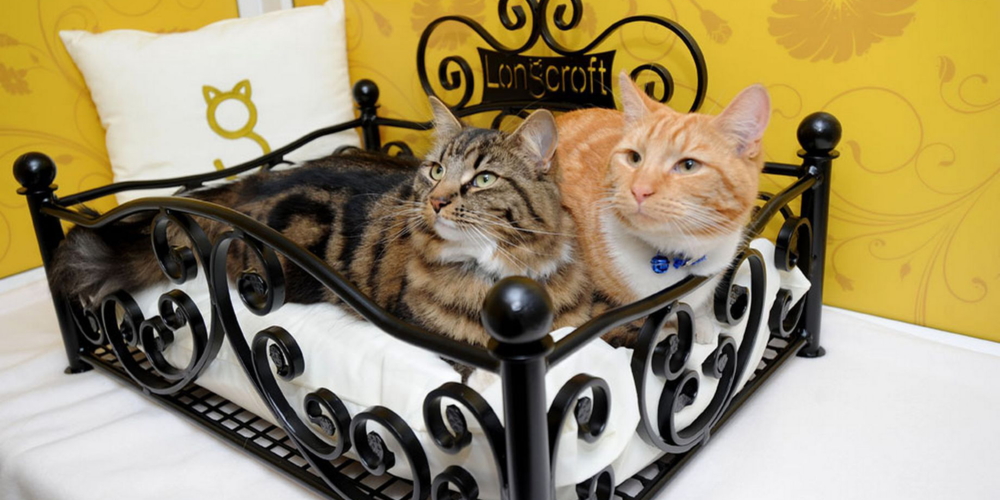English Corner

5 star hotels — for cats and dogs!
Ben WestMany people looking to book a hotel room at the better end of the market demand such things as on-site spas, widescreen tv, an indoor gym and impeccably served fine cuisine.
But would they be happy to pay for the same for their pet? In the UK it seems so, where there is a healthy and growing demand for luxury pet hotels. The animals enjoy their own suites with such features as wrought iron beds, underfloor heating, massages, minibars with treats and candlelit dinners served on bone china plates.
One, the Longcroft Luxury Cat Hotel, dubs itself the world’s first boutique luxury cat hotel group and already has nine 5-star branches for cats around the UK, with two more opening this month in London. Until the London hotels open, Longcroft provide a chauffeur service to the existing hotels.
Room rates at Longcroft, which started five years ago, vary from £17 (26CHF) to £80 (124 CHF) per day. There are spa treatments, such as the ‘total full body groom’ £45 (70 CHF), which includes massage, a paw massage with the finest organic paw balm that is entirely lickable, and a gentle eye and ear cleanse. Treats from the minibar and meals from the ‘a la cat’ menu (hand flaked salmon, poached chicken and pan seared king prawns) naturally cost extra.
Longcroft claims that currently there is a huge demand for luxury cat accommodation in the UK amongst the more discerning of the UK’s 11 million cat owners, and demand at the moment far exceeds supply.
Elmtree Pet Hotel in London has 8000 clients include members of the royal family. It caters for dogs, cats and smaller animals such as rabbits and guinea pigs. In addition to the hotel, it has a grooming parlour and spa, a training centre, and a canine country club with expansive woodland exercise areas.
Features offered by Ings Luxury Cat Hotel include mood lighting, soothing background music and large flatscreen televisions featuring seashores, log fires, rain forests, flying birds and fish aquariums. There are four-poster beds, the softest cotton bedding, goose feather cushions and rich damask décor and woodland animal art lining the walls of bedrooms.
However, there are critics of these hotels. Some animal welfare campaigners believe that such establishments humanise animals and that animals are provided what is preceived a luxury but not what the pet wants or requires. Standard veterinary advice is that animals should not be given human food but given a balanced and nutritional pet food diet.
A recent Euromonitor Internation study found that spending on pets in the UK currently stands at £4.6bn (7.1bn CHF) per year, with the main reason for the rise to be humanisation of pets, which can include attending pet parties, creating social media accounts for pets and buying pet clothing.
In addition, with an increasing number of the British population having to resort to food banks, paupers’ funerals and other strong indicators of poverty, this new breed of hotel has stirred some resentment amongst both pet owners and non-pet owners alike, who think it wrong to lavish such luxury on animals.